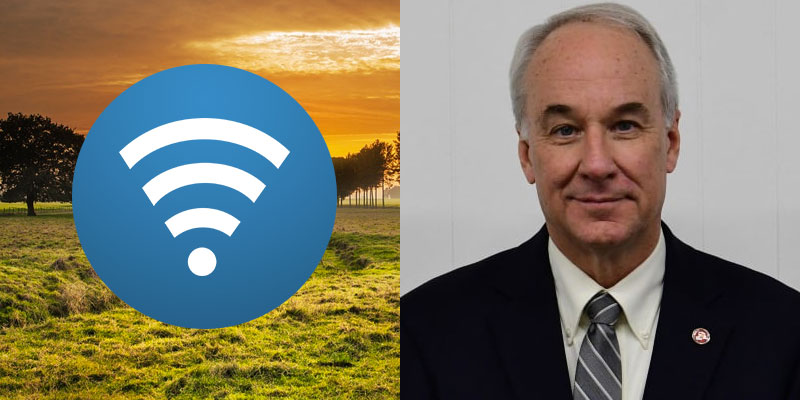The impact of the COVID-19 pandemic will create fundamental changes in the way industry, retailers, education systems, and average citizens perform tasks that were previously considered routine. This social evolution will occur at an increasing pace as the effects of social distancing and other virus prevention directives continue to modify traditional ways of life in the United States and abroad.
As the people of Alabama continue taking the steps necessary to restore the economy, our post-pandemic prosperity will depend largely on strategies instituted during this emergency; teleconferencing, telemedicine, expansion of e-commerce, distance learning within our education systems and on-line career training. To ensure future economic prosperity, it will be critically important to continue developing and increasing access to virtual technologies that assist business, industry and the citizens of Alabama.
In many rural areas of Alabama, progress in economic development, education and quality of life will be largely affected by the availability of reliable, high-speed broadband. As we continue to modernize our economy, funding through federal, state and local governments to assist in the expansion of broadband should become and remain a priority. In addition to supporting legislation to protect consumers participating in e-commerce and other on-line activities, elected representatives should be encouraged to create incentives for private investment in the infrastructure needed to expand access to broadband.
This need is urgent, especially in rural areas of Alabama. According to an analysis by U.S. News & World Report, the state of Alabama currently ranks 47th in the United States in broadband access. Furthermore, more than one-quarter of the population of rural areas of Alabama still lack internet access in the home.
Since the closure of school systems across Alabama in response to the COVID-19 pandemic, the “digital gap” among households has contributed to a “homework gap” among students. In rural Chilton County, Board of Education Superintendent Jason Griffin states, “We have a very serious challenge with internet access in our county. I would say, a large majority of students do not have access to online learning.” This lack of access creates disparities in the progress and achievement attained by affected student populations. To eliminate these disparities, it is imperative that availability of broadband is expanded to make education opportunities readily available to better prepare our young people for future workforce and employment opportunities.
Recent work at home mandates have further emphasized the need for expanded access to broadband. For those who commute from rural areas to jobs in cities, the lack of on-line access created significant barriers to maintaining employment in the COVID-19 environment. Further complicating “Safe at Home” and other mandated directives, the inability to take advantage of on-line shopping for curbside pick-up of groceries and other staples due to the closure of retail outlets not only had a negative impact on individual lives but on the general economy as well.
Increasingly, the agriculture and timber industries predominant in rural counties require high-speed internet to gather real-time data to better manage production and increase yields. The impacts of events like the COVID-19 pandemic on the production and distribution of the nation’s food supply further illustrate the critical need for expanded access to broadband across Alabama.
During 2018, Alabama’s technology sector added 1,900 jobs with a resultant $13 billion in related economic activity. This sector of the Alabama economy will continue to expand and provide career opportunities for properly trained workers. The availability of modern communications systems that provide fast and reliable broadband access will be critical in retaining and supporting our existing technology-based industries as well as attracting expansion opportunities of out of state firms.
The administration of Governor Kay Ivey has recently awarded grants of totaling more than $9.5 million through the Alabama Broadband Accessibility Fund to expand access across the state. In announcing the initial grants, Governor Ivey stated, “Availability of high-speed internet has always been vital, but the events of the past several weeks (COVID-19 Pandemic) magnify how imperative it is that all Alabamians have access to broadband.”
All too often, federal programs relating to the expansion of broadband in rural areas are well-intentioned but lack oversight and enforcement of contracted requirements. In 2011, the administrator of the Rural Utilities Service announced $3.5 billion in aid to expand high-speed Internet access to the hardest-to-reach areas of the country. Six years later, one-half of the 300 projects approved by the Retail Utilities Service had not been completed. Furthermore, more than 40 of the projects initially approved were never initiated. In addition to enacting effective legislation to provide broadband access to rural areas of the United States, legislators must create effective mechanisms to ensure proper oversight of these federally funded projects, and to get rid of outdated red-tape that prevents some of our most experienced and capable broadband providers from competing for federal broadband funds. We need all hands on deck to extend broadband access to all corners of Alabama.
Not unlike the telegraph, telephone and personal electronic devices that represent paradigms in the evolution of communication technologies, broadband will be the catalyst for a new era of social interaction, personal and professional transactions and career development. Although convenient access to broadband will not ensure organizational or personal success in a specific endeavor, the lack of convenient access will most certainly create an insurmountable obstacle to economic prosperity. Every citizen of Alabama should encourage their elected representatives to support the expansion of broadband as a critical investment in our future.
Billy Singleton serves as the President of the Chilton County Chamber of Commerce and Secretary of the Chilton County Industrial Development Authority.
Don’t miss out! Subscribe today to have Alabama’s leading headlines delivered to your inbox.
